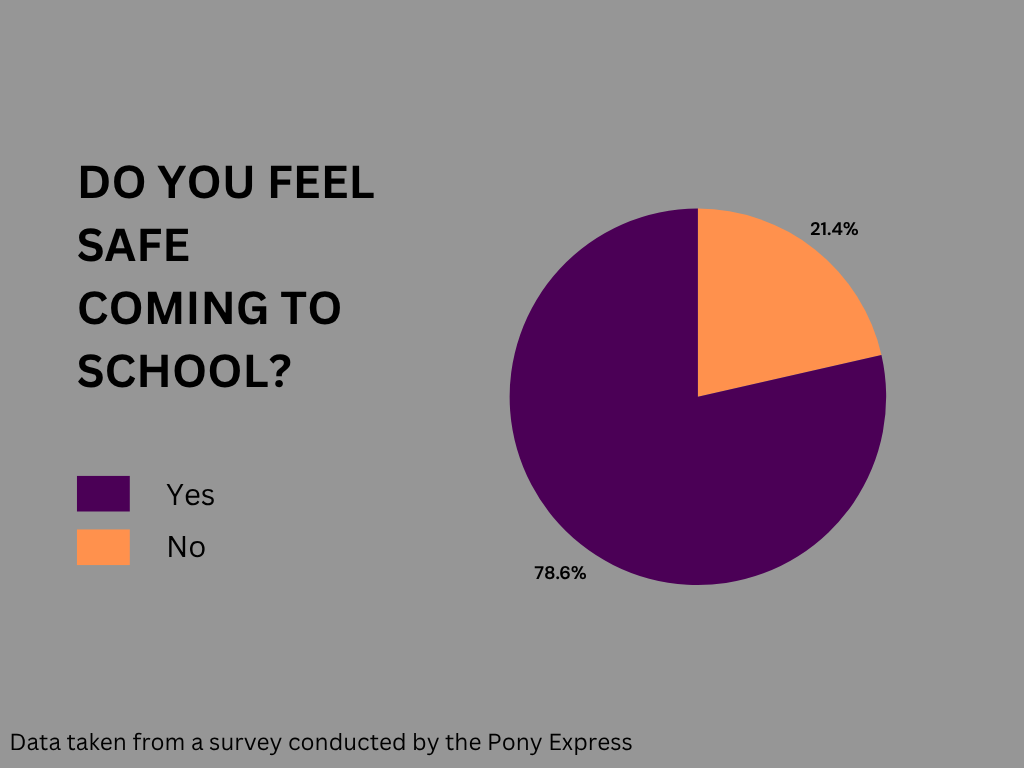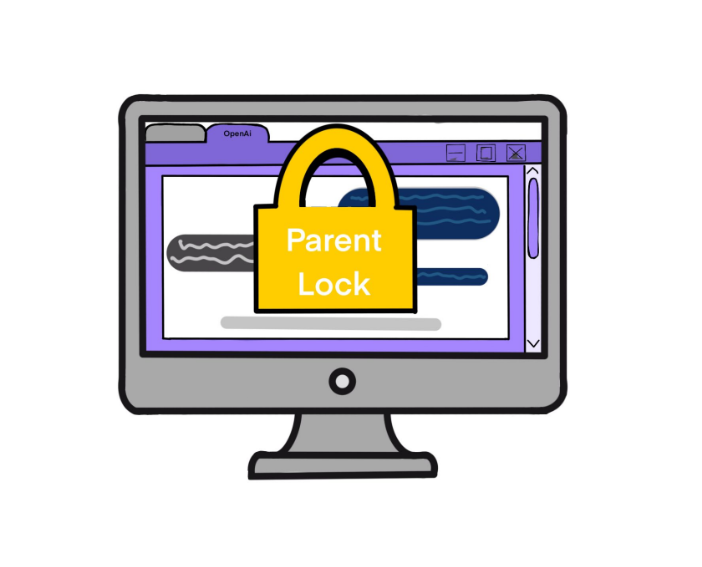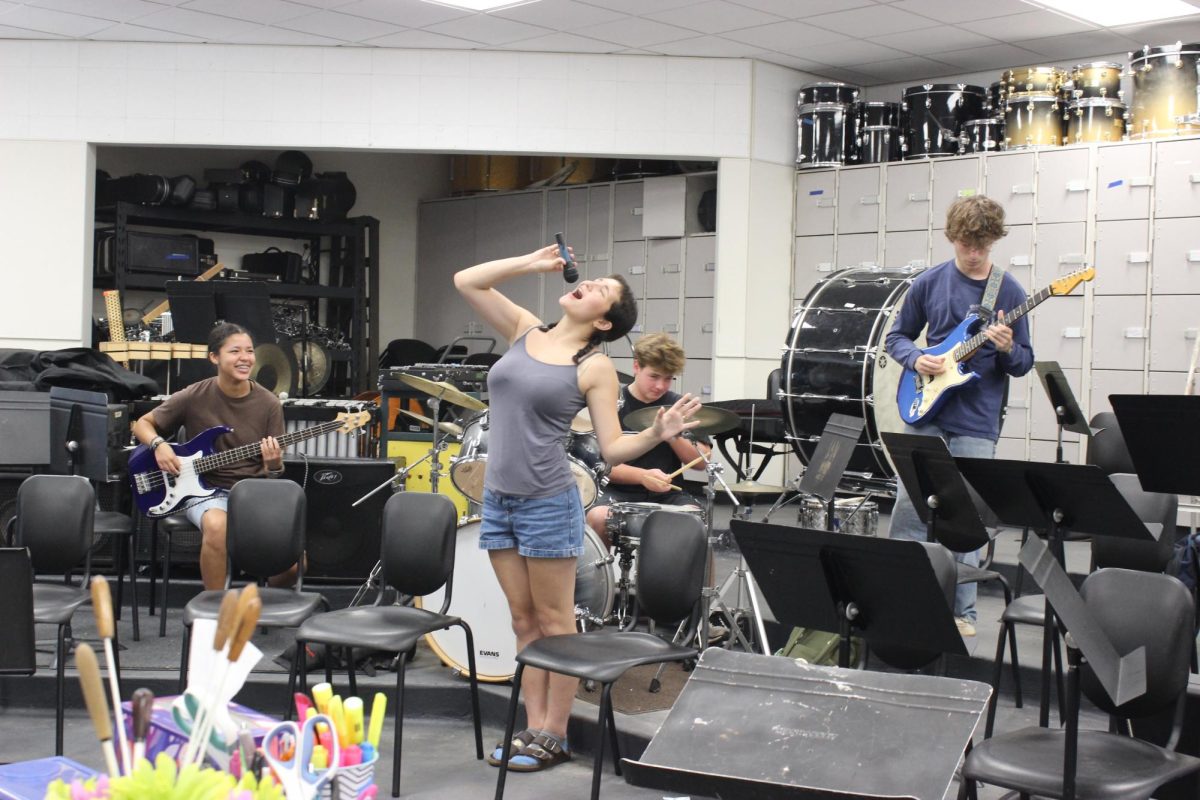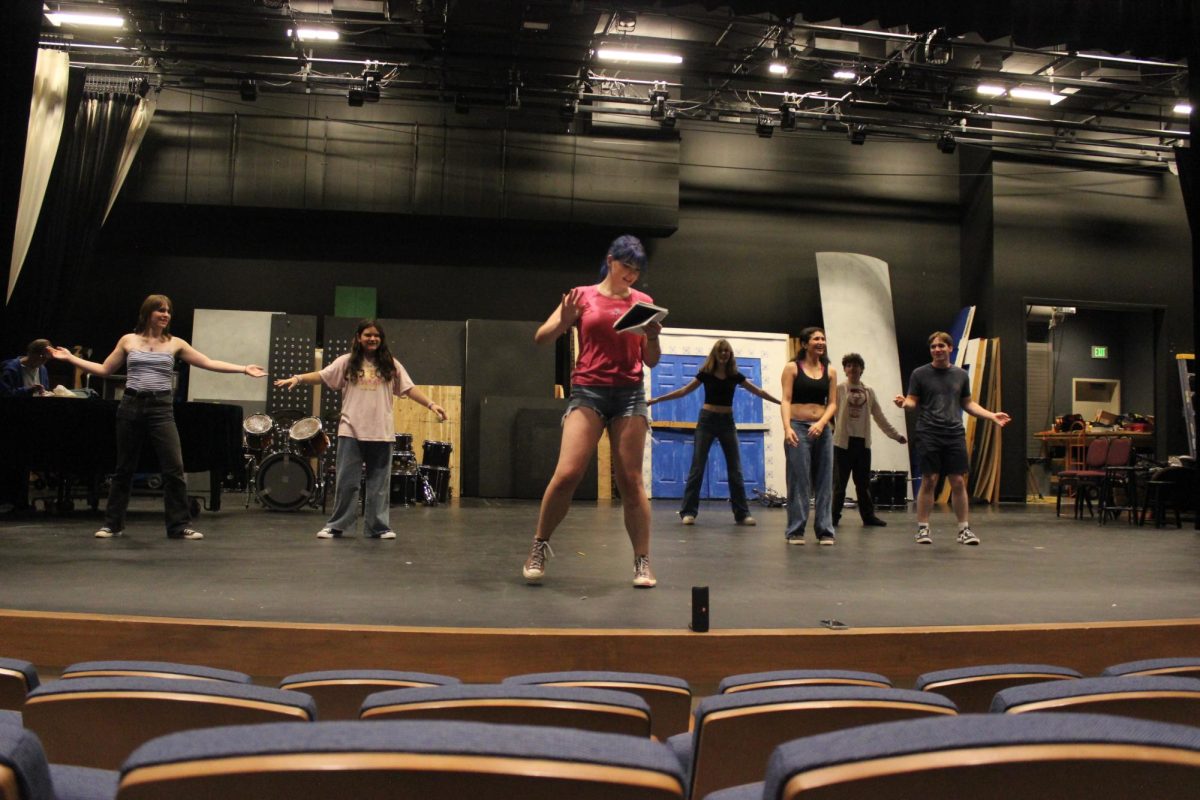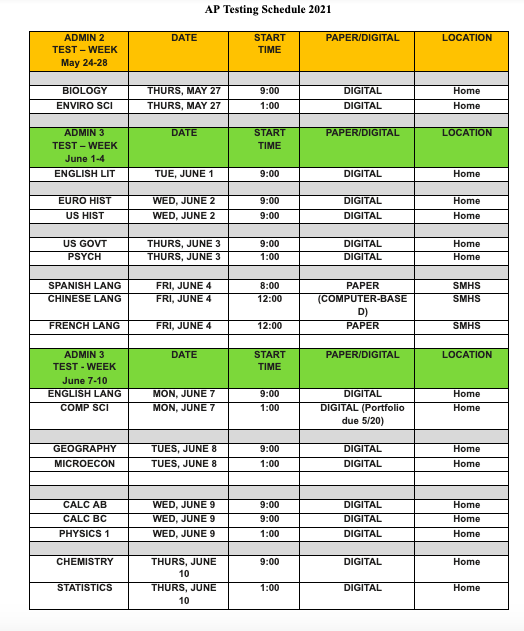The College Board will be providing three test options for students, including a written exam during May 3-17, a digital option to be taken either at home or at school during May 18-28, and another digital administration from Jun. 1-11. San Marin has opted to implement the digital options, with the expectation of World Language classes which will be written. Most tests will be given during the third administration, excluding AP Biology and AP Environmental Science since they are taking place after the school year has ended. Students will take these two tests during the second testing period on May 27.
The full AP testing schedule can be found on the College Board website with exact dates and times. Each test will cost $95 and payment is due on Apr. 30. Students will take their tests on their Chromebooks with the AP Digital Testing Application. The school will provide accommodations for students who do not have a safe, quiet test taking environment with strong wifi at their home. The administration and teachers have chosen this test option because they believe it is the safest option and gives students and teachers the most time to prepare.
“We definitely are moving faster,” AP Biology teacher Jennifer Carlomagno said. “The challenge has been that in reality, I don’t meet with the students any longer, even though it’s shoved into a semester.”
Many students taking AP tests agree that the digital format is the better option.
“With the current circumstances of the world, I think it would be best to not take any chances and have everyone separated from one another,” senior Adonis Reyes said. “If AP tests were to be taken online, that would mitigate nearly any case of happening.”
Last year, students took a modified AP test with some curriculum cut out due to the rapid spread of COVID-19.
“For example, AP Bio right, so for that first-year biology student in college, they didn’t even get a full year of biology in college so we can’t expect high school students to cover the same content,” Counselor Jim Hu said.
This year, as schools were aware that the testing and classes would be different, the College Board assumed that students would be learning the entire curriculum. However, the 4×4 schedule San Marin has implemented this year forced teachers to speed up their lesson plans. AP teachers were especially affected, which has made preparing for these tests more difficult.
“I’m cutting a lot of things,” AP European History teacher Robert Watson said. “It’s kind of structured in a way where it’s like, we got a chapter a week.”
Many students agree that the shortened time frame has made learning the curriculum more difficult.
“It has definitely been tricky to grasp all of the information we will be tested on since our year-long curriculum was condensed into one semester, but my approach to it is that I have nothing to lose and everything to gain,” senior Sydney Tyra said.
Having less time to learn material has caused an increase in support for the later, online test options.
“I think, to make it more easy for AP students taking it at home, or at a later time of the year would be beneficial,” junior Ellie Cifuentes said.
As many students took their AP classes last semester because of the different schedule, students are utilizing other resources to prepare themselves for the tests. The College Board has released AP review videos that can be found on the AP Classroom website. Many students have found it beneficial to safely form study groups to prepare. AP is also offering AP Daily: Live Review on YouTube, Apr. 19-29.
“[The videos] do allow for them to go back and review some concepts and units that they need to review before they take their main exam,” Hu said.
Overall, the expected turn-out for exams this year is fairly high, despite the schedule change. Out of 926 individual possible AP exams to be taken by San Marin students, students have signed up for 762, with a total of 456 AP students. Hu attributes the high number of signups to the increased preparation this year compared to last year.
“I think with the improvements of what the College Board is putting out this year I think there’s much more planning,” Hu said. “Everything is not just reactive like last year was. It seems like they scrambled to put something together to not lose the business [last year].”
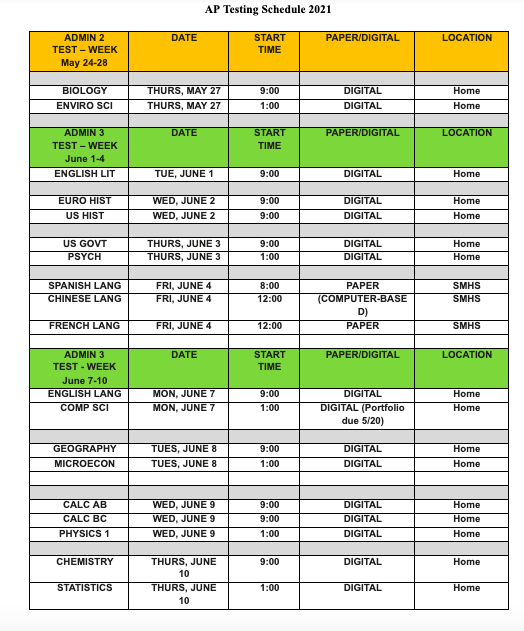
The official AP testing schedule has been sent to all students and displays the testing times, dates, and platforms for all AP tests. Students, excluding foreign language students, will be taking all their tests digitally at home.

